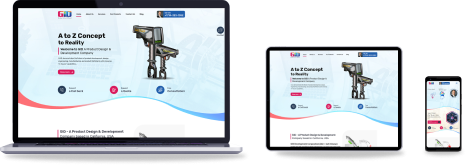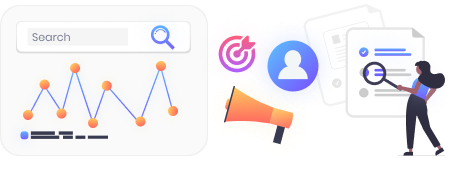
React Native for Web Development: A Deep Guide
React Native has revolutionized the way we develop mobile applications. By allowing developers to write code in JavaScript and render it using native components, React Native has significantly sped up cross-platform app development. But what if you want to take your React Native skills a step further and create web applications with the same codebase? Enter React Native for Web Development.
In this comprehensive guide, we’ll explore the world of React Native for Web Development, its advantages, and how it can be a game-changer for your web development projects. We’ll also delve into real-world examples from Concept Infoway, a leading software development company that has mastered the art of React Native for Web Development.
Understanding React Native
What is React Native?
React Native is an open-source JavaScript framework developed by Facebook that enables the creation of mobile applications for iOS and Android platforms using a single codebase. It allows developers to use familiar React syntax to build highly performant and native-like mobile apps.
Key Features and Benefits
React Native boasts several key features, including hot reloading for faster development, a rich set of native components, and a large community of developers. Its biggest benefit is code reusability, allowing you to share a significant portion of your codebase between iOS and Android.
Use Cases for React Native
React Native is suitable for a wide range of applications, from simple utility apps to complex, data-driven ones. Popular apps like Facebook, Instagram, and Airbnb are built using React Native, showcasing its versatility and scalability.
Exploring React Native Web
Introduction to React Native Web
React Native Web is an extension of React Native that allows developers to render React Native components as web components. In essence, it lets you use the same codebase to build both mobile and web applications, reducing development time and effort.
How React Native Web Extends React Native
React Native Web bridges the gap between React Native and web development by providing a set of components and modules that work seamlessly across platforms. This extension allows you to create web apps that look and feel like native mobile apps.
Advantages of Using React Native for Web Apps
- Code Reusability: One of the primary advantages is the ability to reuse a significant portion of your codebase between mobile and web apps, saving time and resources.
- Consistent User Experience: With React Native for Web Development, you can deliver a consistent user experience across all platforms, maintaining your brand’s identity.
- Faster Development: Building a web app with React Native Web is often faster than traditional web development, thanks to the pre-built components and libraries.
Also Read: The Benefits of Hiring a Professional React JS Development Company – Concept Infoway
Getting Started with React Native for Web
Setting Up the Development Environment
Before you can start developing with React Native for Web, you need to set up your development environment. This involves installing Node.js, npm (Node Package Manager), and the React Native CLI. You can also use tools like Expo to streamline the process.
Creating Your First React Native Web App
Once your environment is set up, you can create your first React Native Web app. Use the “react-native-web” package to initialize your project and start building.
Exploring the Project Structure
A typical React Native Web project has a structure that includes components, assets, and configuration files. Understanding this structure is crucial for efficient development.
Building a React Native Web App
Components and UI Design
Designing your app’s user interface is a critical step. React Native for Web offers a set of UI components that mimic native elements, allowing you to create a consistent and visually appealing interface.
State Management with Redux or Context API
For managing the state of your React Native Web app, you can choose between Redux or the Context API. Both options provide robust state management capabilities to handle complex data flows.
Navigation and Routing in React Native Web
Navigation is a fundamental aspect of any application. React Navigation is a popular library that can be used in both React Native and React Native Web to handle navigation and routing.
Code Reusability
The Concept of Code Sharing
Code sharing is at the core of React Native for Web. It allows you to write logic and components once and use them across different platforms. This approach not only saves time but also ensures consistency.
Strategies for Reusing Code
There are various strategies for code sharing, such as platform-specific files, conditional rendering, and feature flags. Your choice depends on the complexity of your project and the level of customization required for each platform.
Practical Examples from Concept Infoway’s Projects
Concept Infoway, a prominent software development company, has harnessed the power of React Native for Web Development in numerous projects. Let’s look at some real-world examples of how they’ve achieved code reusability and efficiency.
Optimizing for Web
Responsive Design with Flexbox and CSS
Creating a responsive design is essential for web applications. React Native for Web Development leverages Flexbox and CSS to ensure that your app looks and works seamlessly on various screen sizes and orientations.
Dealing with Browser Compatibility Issues
While React Native Web simplifies cross-platform development, you may still encounter browser compatibility issues. It’s crucial to test your app on different browsers and address any compatibility issues that arise.
Performance Optimization Tips
To ensure optimal performance, follow best practices like code splitting, lazy loading, and optimizing images. These steps can significantly improve the speed and efficiency of your React Native Web app.
Case Study: Concept Infoway’s Success with React Native for Web
Overview of Concept Infoway’s Projects
Concept Infoway has a track record of successful projects using React Native for the Web. They have leveraged this technology across various domains, including e-commerce, healthcare, and entertainment.
Challenges Faced and How They Were Overcome
Every project comes with its unique challenges. Concept Infoway shares insights into the difficulties they encountered and the innovative solutions they implemented to overcome them.
Results and Benefits Achieved
The results speak for themselves. Concept Infoway’s clients have benefited from reduced development costs, faster time to market, and consistent user experience across platforms.
Best Practices and Tips
Key Best Practices for Developing React Native Web Apps
To succeed in React Native for Web development, adhere to best practices such as writing clean and modular code, optimizing performance, and following the principles of responsive design.
Tips for a Smoother Development Process
Concept Infoway offers valuable tips on project management, collaboration, and version control to ensure a smooth and efficient development process.
Debugging and Testing Strategies
Debugging and testing are crucial phases of development. Learn how to use tools like React DevTools and Jest to identify and fix issues in your React Native Web app.
Future of React Native for Web
Trends and Advancements in React Native for Web
As the development community continues to embrace React Native for Web, expect to see exciting advancements in this space, such as improved tooling, better performance, and enhanced compatibility.
Potential Use Cases and Industries
The versatility of React Native for Web opens opportunities in various industries, including e-commerce, education, finance, and healthcare. Its potential applications are limitless.
Concept Infoway’s Vision for React Native Web
Concept Infoway envisions a future where React Native for Web becomes the go-to solution for businesses looking to build cross-platform applications efficiently and cost-effectively.
In conclusion, React Native for Web is a powerful tool that empowers developers to create mobile and web applications with a single codebase. With the right approach and the insights shared by Concept Infoway, you can master this technology and unlock its full potential. Whether you’re a seasoned developer or just starting, React Native for Web is a skill worth investing in for the future of web and mobile development. You can also share your requirements with us on Facebook and Instagram.
Frequently Asked Questions – FAQs
Who uses React Native for web?
Startups, SMBs, and enterprises use React Native for web to streamline cross-platform development and reuse codebases. Concept Infoway implements React Native for web development to create high-performance, responsive apps that work seamlessly across mobile and desktop environments—saving both time and cost.
Can you use React Native for web development?
Yes, React Native can be extended to the web using tools like React Native Web. It allows developers to write one codebase for both mobile and web apps. Concept Infoway uses React Native for web development to deliver scalable, consistent user experiences across platforms, ensuring optimal efficiency and performance.
Is React Native for web any good?
React Native for web is excellent for projects aiming for code reuse, rapid development, and UI consistency across devices. At Concept Infoway, we utilize React Native for web development to reduce time-to-market while ensuring responsive and fully functional applications for your business.
What is the best backend for React Native?
Popular backends include Node.js, Firebase, Django, and Laravel. The best choice depends on your project needs. Concept Infoway matches React Native for web development with the most suitable backend technology, ensuring robust performance, real-time capabilities, and seamless integration.
Does React Native navigation work on web?
Yes, React Navigation supports web through the React Native Web integration. It allows developers to create smooth, app-like navigation experiences. Concept Infoway ensures smooth navigation and routing as part of our React Native for web development process, giving users a native-like experience on every device.
Which platform is best for React Native?
React Native excels on both iOS and Android, and with React Native Web, it extends to browsers as well. Concept Infoway builds applications using React Native for web development, offering cross-platform performance that feels native while being cost-efficient and scalable for businesses.
Can I build a website with React Native?
Yes, using React Native Web, you can build responsive websites. It reuses mobile components for web rendering, streamlining development. Concept Infoway offers React Native for web development services to help you build websites that are modern, mobile-first, and efficient—all from a unified codebase.

10 Reasons Why You Should Hire a Next js Developer for Your Project













